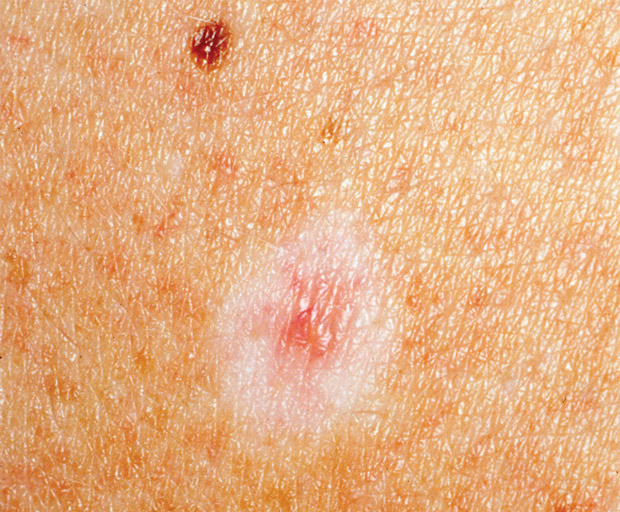Infusion sets, heparin recalled
This column reviews details on recent recalls, warnings, and approvals.
Recalls and warnings
A class I recall of all lots of Body-Guard Infusion Administration Sets by CME America due to risk of over- and under-infusion. The recall, which updated the manufacturer's April recall of more than 28,000 BodyGuard infusion pumps, accessories, and sets, includes more than 4.8 million infusion administration sets distributed from May 6, 2016, to May 11, 2020. The reason for the infusion errors is not known.
A recall of 10 lots of compounded heparin sodium bags by SCA Pharmaceuticals due to the presence of the undeclared preservative benzyl alcohol. In addition, methylparaben and propylparaben, while listed as preservatives on the labeling, were not present. Recalled products were distributed nationwide to hospitals.
A recall of all lots of Desmopressin Acetate Nasal Spray (10 µg/0.1 mL), DDAVP Nasal Spray (10 µg/0.1 mL), and STIMATE Nasal Spray (1.5 mg/mL) by Ferring Pharmaceuticals US due to superpotency. A single nonfatal adverse event potentially associated with this issue was reported in the U.S. during the timeframe that the affected product was distributed.
A recall of two lots of metformin hydrochloride extended-release tablets USP (500 mg and 750 mg) by Bayshore Pharmaceuticals LLC due to the detection of N-nitrosodimethylamine levels above the acceptable daily intake limit. The product was manufactured in June 2019 by Beximco Pharmaceuticals Limited in Bangladesh for U.S. distribution by Bayshore.
A recall of the ChloraPrep 3-mL applicator by Becton, Dickinson and Company due to possible fungal contamination in certain climate zones. The recall does not apply to any states in the U.S.; it applies to the U.S. territories of Puerto Rico, Guam, U.S. Virgin Islands, Northern Mariana Islands, and American Samoa.
COVID-19 updates
Emergency use authorizations for the first COVID-19 serology tests that display an estimated quantity of antibodies present in the blood. The ADVIA Centaur SARS-CoV-2 IgG and Atellica IM SARS-CoV-2 IgG tests are known as “semi-quantitative” because they do not display a precise measure; rather, they provide an estimate of the quantity of antibodies produced against infection with the virus.
Revocation of the emergency use authorization for the Anti-SARS-CoV-2 Rapid Test by Autobio Diagnostics Co. Ltd. There have been performance concerns with the accuracy of this COVID-19 antibody test.
The third emergency use authorization for a COVID-19 antigen test. The LumiraDx SARS-CoV-2 Ag Test was authorized for use in certain high- and moderate-complexity laboratories and at the point of care in certain patient care settings.
An emergency use authorization for the SalivaDirect COVID-19 diagnostic test. The molecular test uses a new method of processing saliva samples when testing for COVID-19, does not require any special type of swab or collection device, and does not require a separate nucleic acid extraction step.
An umbrella emergency use authorization for surgical masks. The FDA issued the authorization in response to concerns relating to insufficient supply and availability of disposable, single-use surgical masks. Surgical masks that meet specific performance requirements are authorized for use in health care settings by health care personnel as personal protective equipment.
Guidance to help ensure that hand sanitizers produced under the FDA's temporary guidance do not contain unsafe levels of methanol, a toxic ingredient. Several companies have recalled hand sanitizer products due to methanol contamination, and some people who have ingested contaminated products have experienced adverse events including blindness, hospitalizations, and death. The agency has updated its guidance to provide clarifications that companies test each lot of the active ingredient (ethanol or isopropyl alcohol) for methanol if the ethanol or isopropyl alcohol is obtained from another source.
Emergency use authorizations for several ventilator-related devices. Authorized devices include the Subsalve Oxygen Treatment Hood to help treat acute respiratory distress symptoms resulting from COVID-19 in adults in ICU settings; the VORTRAN GO2VENT with PEEP Valve to deliver emergency, short-term, constant-flow pressure-cycled ventilator support in patients who weigh 10 kg or more; and the nHale device, which provides bi-level positive air pressure in spontaneously breathing adults with COVID-19 who weigh more than 30 kg.
An emergency use authorization for the Impella Left Ventricular Support Systems. The systems are authorized to provide temporary left-ventricle unloading and support to treat critically ill patients with confirmed COVID-19 who are receiving extracorporeal membrane oxygenation treatment.
An emergency use authorization for the REGIOCIT replacement solution for adult patients being treated with continuous renal replacement therapy for whom regional citrate anticoagulation is appropriate. Emergency use is limited to critical care settings in health care facilities that the manufacturer has qualified for receiving the product.
Premarket clearance of a surgical gown and three types of polymer patient examination gloves. The gloves and gowns are intended to be worn for medical purposes to provide a barrier against potentially infectious materials and other contaminants, including during the COVID-19 pandemic.
Updates to the FDA's COVID-19 Drug Shortages Response webpage. The site provides clinicians with information regarding “in-use time” for certain drugs during the COVID-19 public health emergency. The in-use time is the maximum amount of time allowed to elapse between penetration of a container-closure system containing a sterile drug product, or reconstitution of a lyophilized drug product, and patient administration. Health care facilities and clinicians have in some cases considered use beyond the in-use time for certain drugs, such as heparin sodium, hydromorphone, and epinephrine. If such use is necessary to help ensure patient access, the time allowed to elapse should be as short as possible, the FDA said.
Updates to the FDA's Coronavirus Treatment Acceleration Program webpage. The site contains new metrics and frequently asked questions. As of Aug. 31, more than 590 drug development programs are in the planning stages, and the FDA has reviewed more than 310 trials.
Miscellaneous
An update on adverse events related to breast implants. An FDA analysis of global medical device reports for breast implant-associated anaplastic large-cell lymphoma found a total of 733 unique cases and 36 patient deaths globally, which reflect an increase of 160 new cases and three deaths since July 7, 2019. Of the 733 reported cases, 620 cases were for Allergan implants, with at least 496 cases implicating textured implants. The FDA also qualified the BREAST-Q Reconstruction Module, a validated, self-administered questionnaire, which may be used in medical device evaluation and to support regulatory decision making. Clinicians and patients should report any adverse events related to breast implants to the agency's Adverse Event Reporting Program.
Approvals
Satralizumab-mwge (Enspryng) to treat neuromyelitis optica spectrum disorder in adults who are positive for anti-aquaporin-4 (AQP4) or AQP4 antibodies. The orphan drug is the third approved treatment for the rare autoimmune disease. In two 96-week clinical studies, treatment with the drug reduced the number of neuromyelitis optica spectrum disorder relapses by 74% to 78% compared to placebo in patients who were anti-AQP4 positive. There was no evidence of benefit in those who were anti-AQP4 negative in either trial. The drug carries warnings for increased risk of infection, elevated liver enzymes, decreased neutrophil counts, and hypersensitivity reactions. The most common side effects include the common cold, headache, upper respiratory tract infection, inflammation of the lining of the stomach, rash, joint pain, extremity pain, fatigue, and nausea. Vaccination with live or live-attenuated vaccines is not recommended during treatment and should be done at least four weeks before starting the drug.
A companion diagnostic to identify patients with specific types of mutations of the epidermal growth factor receptor (EGFR ) gene in patients with a form of metastatic non-small-cell lung cancer. The Guardant360 CDx assay is the first approved diagnostic to combine next-generation sequencing and liquid biopsy in one test in order to guide treatment decisions. It is approved both to provide information on multiple solid tumor biomarkers and to help identify EGFR mutations in patients who will benefit from treatment with osimertinib (TAGRISSO), an FDA-approved therapy for a form of metastatic non-small-cell lung cancer.
Viltolarsen (Viltepso) injection for the treatment of Duchenne muscular dystrophy in patients who have a confirmed mutation of the DMD gene that is amenable to exon 53 skipping. In one clinical study of 16 patients, dystrophin levels increased, on average, from 0.6% of normal at baseline to 5.9% of normal at week 25 after treatment with the drug. The most common side effects were upper respiratory tract infection, injection-site reaction, cough, and fever. Although clinical benefit of the drug was not established, the FDA's approval was based on the potential risks associated with the drug, the life-threatening and debilitating nature of the disease, and the lack of available therapies.
First-time generic approvals
Chlordiazepoxide hydrochloride and clidinium bromide capsules USP (5 mg/2.5 mg) to control emotional and somatic factors in gastrointestinal disorders as an adjunctive therapy to treat peptic ulcer, and to treat irritable bowel syndrome and acute enterocolitis. (Brand name: Librax)
Metyrosine capsules USP (250 mg) for the treatment of pheochromocytoma for preoperative preparation of patients for surgery, for the management of patients when surgery is contraindicated, and for the long-term treatment of patients with malignant pheochromocytoma. (Brand name: Demser)
Deferasirox oral granules (90 mg, 180 mg, and 360 mg) for the treatment of chronic iron overload due to blood transfusions in patients ages 2 years and older. (Brand name: Jadenu Sprinkle)
Note: The FDA states that drugs are not always commercially available immediately after approval.




